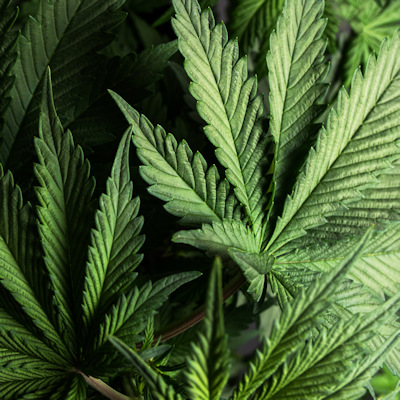May 3, 2023 -- A multicenter registry study found that medicinal cannabis safely relieved cancer patients' pain, while curbing the total number of medications and opioids they took. The research, published Tuesday in BMJ Supportive & Palliative Care, indicates that products with an equal balance of tetrahydrocannabinol (THC) and cannabidiol (CBD) seem to be particularly effective.
Over half of patients undergoing cancer treatment and two-thirds of those with advanced or terminal disease experience pain. Powerful medications, including anti-inflammatories, anticonvulsants, and opioids, are usually prescribed for pain relief. But one in three patients still experiences pain; in addition, opioids' unwanted side effects include nausea, sleepiness, constipation, and respiratory depression.
The researchers sought to learn whether medicinal cannabis could safely and effectively relieve cancer pain, while simultaneously reducing the number of medications and opioids taken. They studied treatment responses submitted to Canada's multicenter Quebec Cannabis Registry, from 358 adults with cancer over a 3.5-year period (May 2015 to October 2018). The patients' average age was 57; nearly half (48%) were men. The three most common cancer diagnoses were breast, bowel, and genitourinary (urinary system cancers, and in men, also reproductive-organ cancer). The most frequently reported symptom (72.5%) that prompted a medicinal cannabis prescription was pain.
THC-dominant, THC:CBD-balanced, and CBD-dominant products were authorized in 24.5%, 38%, and 16.5% of patients, respectively. Oral consumption was the most frequently recommended route (59%). The patients' pain intensity, symptoms, total number of drugs taken, and daily morphine consumption were monitored quarterly for one year. Pain intensity was rated on a sliding scale from none (zero) to the worst possible (10), and pain relief from none (0%) to complete (100%), with two summary measures of overall pain severity and pain interference over the preceding 24 hours.
Medicinal cannabis appeared safe and well tolerated, with only 15 moderate-to-severe side effects reported by 11 patients. Only five patients stopped taking medicinal cannabis because of side effects. Statistically significant decreases were observed at three, six, and nine months for worst and average pain intensity, overall pain severity, and pain interference with daily life.
Overall, THC:CBD-balanced products were associated with better pain relief than either THC-dominant or CBD-dominant products. The total number of drugs taken also fell consistently at all subsequent quarterly check-ups, while opioid use fell over the first three check-ups. While observational studies such as this cannot establish cause, the researchers believe medicinal cannabis can provide a safe alternative when conventional drugs fail to relieve cancer pain.
"The particularly good safety profile of medicinal cannabis found in this study can be partly attributed to the close supervision by healthcare professionals who authorized, directed, and monitored treatment," wrote the researchers. "Our data suggest a role for medicinal cannabis as a safe and complementary treatment option in patients with cancer failing to reach adequate pain relief through conventional analgesics, such as opioids."
Copyright © 2023 scienceboard.net










